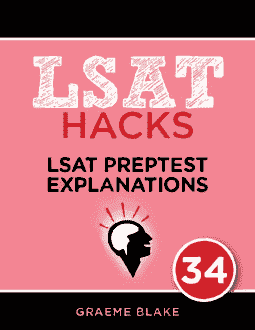QUESTION TEXT: The literature department’s undergraduate courses should cover…
QUESTION TYPE: Principle – Strengthen
ARGUMENTS: Chan argues that the literature department should only study literary works and that it should avoid studying advertisements.
Professor Wigmore isn’t sure if ads are literary works. But he is sure that they influence society because people can’t figure out their true messages. The literature department trains people to understand what they read. Therefore it should train people to understand ads.
ANALYSIS: Sure, the literature department teaches students to understand texts. But there are a lot of texts that we don’t study in literature classes. Wigmore’s argument needs help to show that ads should be studied as literature.
The right answer gives us a specific reason to study ads: they can harm society and literature classes should study any text that can harm society.
___________
- This would actually ruin Professor Wigmore’s argument. He wanted to study ads only because people can’t figure them out.
- The professor states ads may not be real literature; his argument was that we should study ads because they are powerful and harmful. This answer is about whether a text could be literature, so it is besides the point.
- All of the literature department’s courses already teach students critical skills. This ads nothing.
- CORRECT. Ads are texts that can affect society, and presumably they can therefore harm it. So students must be taught how to understand ads.
- This weakens Wigmore’s argument. He’s arguing that teachers shouldn’t be able to choose: they must have a course that teaches ads.


Ads ARE subtly constructed (Answer choice B) as demonstrated by the first sentence of Professor Wigmore’s response, “people cannot discern their real messages.” Unless you’re saying that you can’t infer “subtle construction” from people being unable to discern the real message of ads, I feel a more appropriate explanation as to why B is wrong would be that even if ads SHOULD be considered a form of true literature, the conclusion deals with the neccesity of teaching with examples that can develop a student’s critical skills.
I agree that there is textual evidence for ads being subtly constructed, so we have amended the explanation. Whether or not ads are subtly constructed, the best reason for why B is wrong is that it says “Any text that fulfils condition 1 and 2 ought to be considered a form of literature.” While ads may fulfil both conditions, Professor Wigmore still started with “advertisements may or may not be true literary works”, so he’s not sure if ads are literature. So he doesn’t actually support that ads ought to be considered a form of literature, nor does B really address the crux of the argument. I think that might be what you were getting at in your comment. Hopefully the amended explanation clears things up!